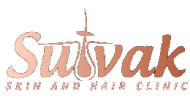


Acne pustules are small, inflamed, pus-filled bumps on the skin’s surface. They form when the pores of the skin become clogged with oil, dead skin cells, and bacteria, leading to inflammation and pus formation. Pustules are a moderate type of acne and are noticeable due to their reddish base with a white or yellow center.
The main cause of acne pustules is the clogging of skin pores due to an accumulation of excess oil, dead skin cells, and bacteria. Other factors contributing to their development include hormonal changes (especially during puberty, menstrual cycles, and pregnancy), certain medications, stress, and diet.
The key symptom of acne pustules is the presence of red, inflamed bumps on the skin with a white or yellow center filled with pus. They can be tender or painful to touch and are commonly found on the face, chest, shoulders, and back.

It’s important to differentiate between acne papules and pustules as they require different treatment approaches.
Papules are small, red, raised bumps without any visible pus. They are caused by similar factors as pustules but represent an earlier stage of inflammation. Pustules, on the other hand, are filled with pus and are indicative of more advanced inflammation.
Some effective home remedies can help reduce the inflammation and appearance of acne pustules:
2. Honey: Its antibacterial properties can help heal the skin. Apply a small amount of honey directly to the pustules.
3. Apple Cider Vinegar: Dilute apple cider vinegar with water and apply it to pustules using a cotton ball. It can help kill bacteria and lessen pustules. Leave on for a few minutes, then rinse off.
4. Green Tea: Apply cooled green tea topically to reduce acne inflammation and bacteria. Use as a face wash or on affected areas.
5. Warm Compress: Use a warm, damp cloth on pustules to soothe inflammation and encourage healing. The warmth opens pores, aiding natural drainage. Apply gently without squeezing the pustules.
6. Aloe vera: Helps soothe the skin and reduce redness. Apply pure aloe vera gel to the pustules.

For more persistent or severe cases of acne pustules, consider the following treatments:
2. Benzoyl Peroxide: This over-the-counter medication kills bacteria, helps remove excess oil, and exfoliates dead skin cells, which can reduce and prevent pustules.
3. Salicylic Acid: Another over-the-counter option, salicylic acid, helps unclog pores by breaking down the debris that causes pustules. It also reduces swelling and redness.
4. Prescription medications: A dermatologist may prescribe topical retinoids, antibiotics, or oral medications like isotretinoin for more severe cases.
5. Professional treatments: Chemical peels, laser therapy, and light therapy are options that a dermatologist might recommend.
6. Lifestyle changes: Incorporating a healthy diet, reducing stress, and maintaining proper skin hygiene can support your treatment plan.
7. Stress Management: Reducing stress through activities like yoga, meditation, or exercise can lower the body’s production of certain acne-triggering hormones.

Effectively managing and treating acne pustules involves a combination of proper skin care practices, potential home remedies, and seeking professional advice when needed. For those in need of expert care, consulting the best dermatologist or skin specialist in Andheri at Sutvakclinic can provide targeted acne treatment and personalized care to help achieve clearer, healthier skin.
Yes, diet can impact acne. Foods high in sugar or dairy products may exacerbate acne for some individuals. Opt for a balanced diet with plenty of fruits, vegetables, and whole grains.
No, acne pustules are not contagious. They result from internal factors and skin conditions, not from bacteria or viruses that can spread to others.
Twice a day with a gentle cleanser is generally recommended. Overwashing can irritate the skin and worsen acne.
Yes, changing pillowcases and towels regularly can help prevent the buildup of bacteria, oil, and dead skin cells that can aggravate acne pustules. It’s recommended to use clean pillowcases and towels every few days, especially if you have acne-prone skin.
Vitamins A, D, and E, as well as zinc supplements, may help improve skin health and reduce acne pustules. However, it’s best to consult with a healthcare provider before starting any new supplement.
Yes, changes in humidity and temperature can influence skin behavior and potentially exacerbate acne pustules. It may be necessary to adjust your skincare routine accordingly.
No products in the cart.
WhatsApp us
